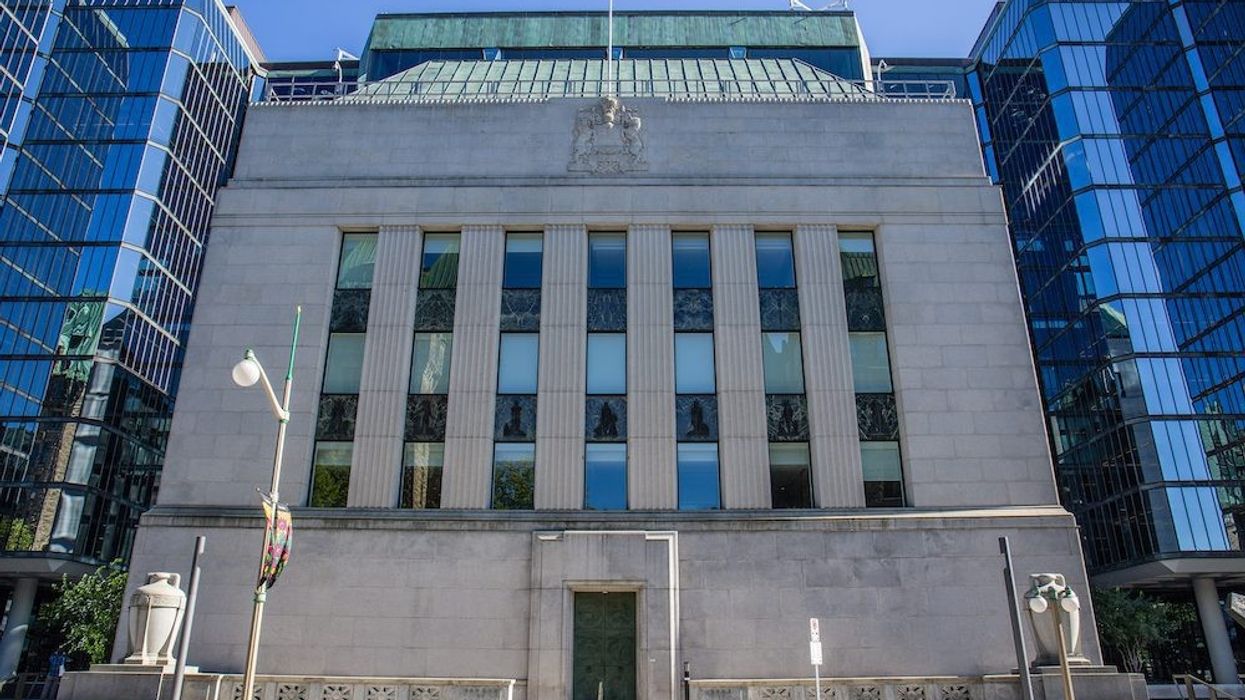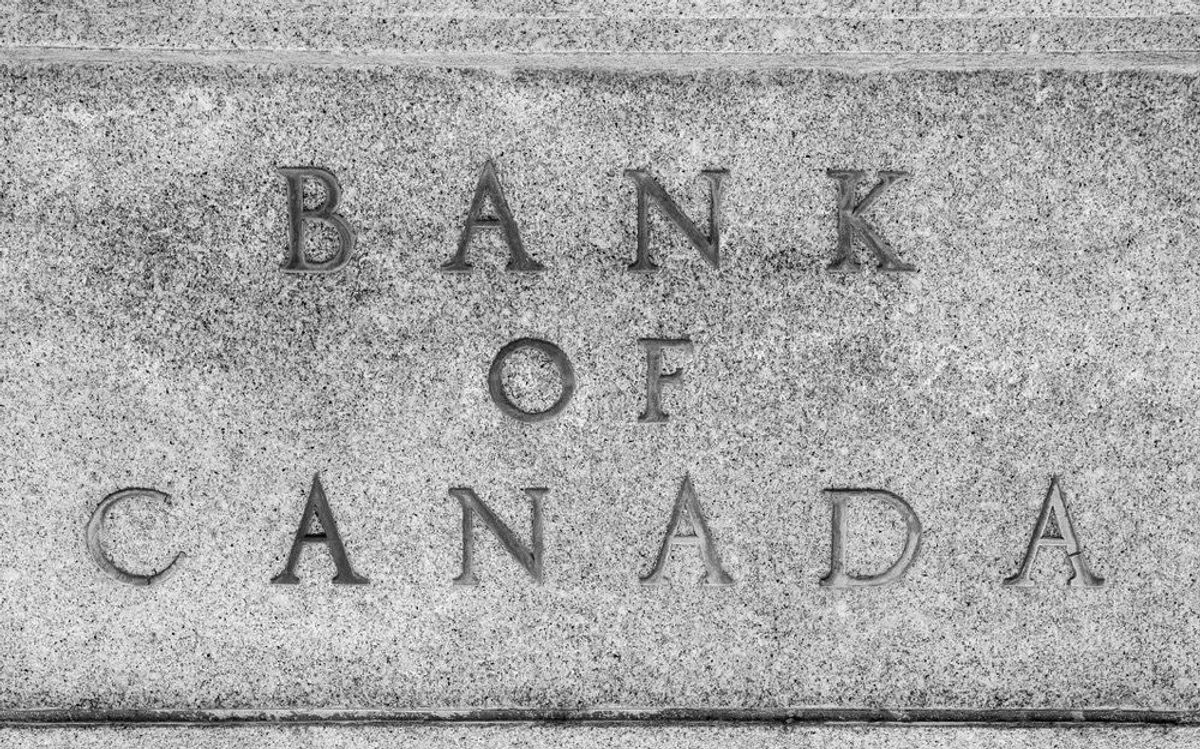Russia’s full-scale invasion of Ukraine has significantly ramped up geopolitical tensions, not to mention economic uncertainty; members of NATO have responded swiftly with sanctions, while Germany announced it was holding up progress on the Nord Stream-2 Pipeline, cutting off what was to be a major supply of Russian natural gas into Europe.
As a result, global equity markets and oil prices responded yesterday with considerable volatility: both the NASDAQ and S&P 500 dipped into Bear territory before an end-of-day rally, while global oil prices briefly surged above the $100-per-barrel mark.
While the initial market reaction has since settled, uncertainty over how the situation will play out poses some questions on the home front regarding monetary policy: could the Russian invasion of Ukraine force the Bank of Canada to take a new direction in next Wednesday's interest rate announcement?
Rate Hikes Are Still Coming - But Their Pace May Slow
While the Bank heavily weighs geopolitical conflict in its strategy, consumers can still expect their cost of borrowing to increase next week.
Benjamin Reitzes, Managing Director, Canadian Rates & Macro Strategist at Bank of Montreal, tells STOREYS that recent events won’t prompt the central bank to reverse course on its already-baked-in increase -- but that it may require a less aggressive approach as the hiking cycle unfolds.
“Our expectations have not changed at this point. We were expecting a 25-basis-point rate hike on March 2, and we still expect a 25-basis point rate hike on March 2,” he says.
“What might have changed a little bit for the market is there have been some folks out there who were talking about a potential 50-basis -point move. I think the probability of that was already slim, but now that should be completely off the table.
"But, the reality is, the drivers of changing policy at the bank, those factors haven’t changed. Inflation is still elevated... the macro impact on Canada should be relatively small.”
Read: Inflation in Canada Hit 5.1% in January, Highest Since September 1991
Mortgage Analyst Robert McLister concurs, saying the BoC is facing too much inflation pressure to delay rate liftoff any longer.
“There was no justification to keep rates near zero last month and there will be no justification next week. Inflation is dangerously high, and worsening. The Russian conflict could exacerbate it, especially if oil stays above $100 a barrel. The Bank's obligation to adjust rates to a more appropriate level is no less urgent today,” he says.
“The conflict could alter the pace and trajectory of monetary tightening, but not the start of the rate hike cycle. Market probabilities of a rate hike next Wednesday remain at 100%. And traders are still pricing in about six hikes this year, same as last week.”
Energy Prices Remain the Bellwether for Canadian Economy
As Canada doesn’t have significant direct trade or investment with either Russia or Ukraine, energy prices will present the most direct impact on our economy, and by extension, monetary policy and cost of borrowing. Had yesterday’s oil price spike above the $100/bbl market (its first since 2014) been prolonged -- or should it re-occur -- that will amp up the already considerable pressure on inflation, which hit a 30-year high in January due to pandemic-induced supply chain imbalances.
Read: Could Rate Hikes Lead to a 20% Drop in Home Prices?
“This latest run-up in oil prices complicates an already-fraught inflation backdrop”, writes Douglas Porter, Chief Economist and Managing Director of Economics at BMO, in a special report. “Every $10 rise in oil tends to boost headline inflation in the US and Canada by roughly 0.4 percentage points. And note that January’s already-lofty readings -- 7.5% in the U.S. and 5.1% in Canada -- had not fully taken on-board the rise to $90 oil, let alone $100. Thus, if prices hold at current levels, or head higher, this factor alone could bump headline inflation by roughly 0.6 ppts.”
As of today, April Brent Crude futures have calmed by 79 cents to $98.29, following yesterday’s peak of $101.99, while WTI fell 2 cents to $92.79, after hitting $95.65, granting the BoC a reprieve from increasing energy-induced inflation pressure.
Could Lower Fixed Rates Be in Store?
As is to be expected during a market tantrum, investors have responded by piling into safe haven options, namely bond yields. The five-year Canadian government bond briefly absorbed a five-basis-point plunge upon news of the invasion, before leveling out to 1.74% at close. Continued investor interest will continue to push yields -- and ultimately the fixed cost of borrowing -- lower. But analysts say it’s too soon to make a definitive call.
“I’d wait and see and take stock of where things are going, but you’re not going to have a knee-jerk reaction on relatively small move on the grand scale of things now; five-year bonds are only five basis points lower, and at this point, the Bank of Canada is more looking at the accompanying move in Prime that goes with the change in their policy rate, moreseo than a shift in policy rates and interim rates, because you’ve already had a good chunk of that move because serious rate hikes are already baked into the market,” says Reitzes.
“If things were to worsen and we’d get a continued rally in rates, that would change things, but we’re not there yet.”
Adds McLister, “Russian isolation and worsening sentiment in Europe will hit global growth, but the Canadian economy should be spared significant collateral damage. For yields to dive amid soaring inflation and robust employment, markets will have to see much clearer signs of domestic risk. Today's yield rebound and stock rally tell us everything there is to know about how concerned the market really is.”





















